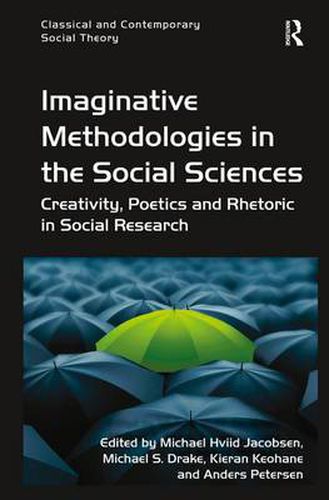Readings Newsletter
Become a Readings Member to make your shopping experience even easier.
Sign in or sign up for free!
You’re not far away from qualifying for FREE standard shipping within Australia
You’ve qualified for FREE standard shipping within Australia
The cart is loading…






Imaginative Methodologies in the Social Sciences develops, expands and challenges conventional social scientific methodology and language by way of literary, poetic and other alternative sources of inspiration, as sociologists, social workers, anthropologists, criminologists and psychologists all rethink, provoke and reignite social scientific methodology. Challenging the mainstream orthodoxy of social scientific methodology, which closely guards the boundaries between the social sciences and the arts and humanities, this volume reveals that authors and artists are often engaged in projects parallel to those of the social sciences and vice versa, thus demonstrating that artistic and cultural production does not necessarily constitute a specialist field, but is in fact integral to social reality. As such, it will be of interest to scholars and students in the social sciences and across the arts and humanities working on the philosophy of social science, methodology, social theory, creativity, poetics, pedagogy and other related topics.
$9.00 standard shipping within Australia
FREE standard shipping within Australia for orders over $100.00
Express & International shipping calculated at checkout
Imaginative Methodologies in the Social Sciences develops, expands and challenges conventional social scientific methodology and language by way of literary, poetic and other alternative sources of inspiration, as sociologists, social workers, anthropologists, criminologists and psychologists all rethink, provoke and reignite social scientific methodology. Challenging the mainstream orthodoxy of social scientific methodology, which closely guards the boundaries between the social sciences and the arts and humanities, this volume reveals that authors and artists are often engaged in projects parallel to those of the social sciences and vice versa, thus demonstrating that artistic and cultural production does not necessarily constitute a specialist field, but is in fact integral to social reality. As such, it will be of interest to scholars and students in the social sciences and across the arts and humanities working on the philosophy of social science, methodology, social theory, creativity, poetics, pedagogy and other related topics.